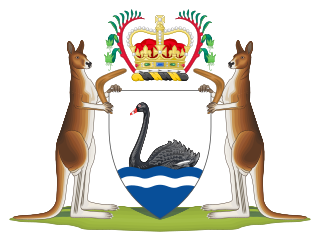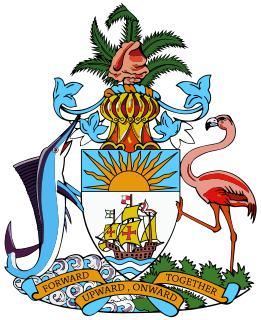
The Family Court of Australia was a superior Australian federal court of record which deals with family law matters, such as divorce applications, parenting disputes, and the division of property when a couple separate. Together with the Federal Circuit Court of Australia, it covered family law matters in all states and territories of Australia except for Western Australia, which has a separate Family Court. Its core function was to determine cases with the most complex law, facts and parties, to cover specialised areas in family law, and to provide national coverage as the national appellate court for family law matters.
The courts of England and Wales, supported administratively by Her Majesty's Courts and Tribunals Service, are the civil and criminal courts responsible for the administration of justice in England and Wales.

A tribunal, generally, is any person or institution with authority to judge, adjudicate on, or determine claims or disputes—whether or not it is called a tribunal in its title. For example, an advocate who appears before a court with a single judge could describe that judge as "their tribunal." Many governmental bodies that are titled as "tribunals" are described so in order to emphasize that they are not courts of normal jurisdiction. For example, the International Criminal Tribunal for Rwanda was a body specially constituted under international law; in Great Britain, employment tribunals are bodies set up to hear specific employment disputes. In many cases, the word tribunal implies a judicial body with a lesser degree of formality than a court, in which the normal rules of evidence and procedure may not apply, and whose presiding officers are frequently neither judges, nor magistrates. Private judicial bodies are also often styled "tribunals." The word tribunal, however, is not conclusive of a body's function—for example, in Great Britain, the Employment Appeal Tribunal is a superior court of record.

The Judiciary of the Hong Kong Special Administrative Region is the judicial branch of the Hong Kong Special Administrative Region. Under the Basic Law of Hong Kong, it exercises the judicial power of the Region and is independent of the executive and legislative branches of the Government. The courts in Hong Kong hear and adjudicate all prosecutions and civil disputes, including all public and private law matters.

The judiciary of Australia comprises judges who sit in federal courts and courts of the States and Territories of Australia. The High Court of Australia sits at the apex of the Australian court hierarchy as the ultimate court of appeal on matters of both federal and State law.

The Magistrates' Court of Victoria is the lowest court in the Australian state of Victoria.

The Supreme Court of Western Australia is the highest state court in the Australian State of Western Australia. It has unlimited jurisdiction within the state in civil matters, and hears the most serious criminal matters.

The Supreme Court of the Australian Capital Territory is the highest court of the Australian Capital Territory. It has unlimited jurisdiction within the territory in civil matters and hears the most serious criminal matters.

The Local Court of New South Wales is the lowest court in the judicial hierarchy of the Australian state of New South Wales. Formerly known as the Court of Petty Sessions and the Magistrates Court, there are more than 160 branches across New South Wales where the Local Court has jurisdiction to deal with the majority of minor civil and criminal matters.

The Federal Circuit Court of Australia, formerly known as the Federal Magistrates Court of Australia or the Federal Magistrates Service, was an Australian court with jurisdiction over matters broadly relating to family law and child support, administrative law, admiralty law, bankruptcy, copyright, human rights, industrial law, migration, privacy and trade practices.

The Magistrates Court of Western Australia is the first tier court in Western Australia, a state of Australia. It has jurisdiction in respect of criminal and civil matters, as well as a range of administrative matters. The court came into existence in May 2005 and was the result of the amalgamation of the Court of Petty Sessions of Western Australia, Small Claims Tribunal of Western Australia, and the Local Court of Western Australia.
The Western Australian Industrial Relations Commission, as constituted under the Industrial Relations Act 1979, conciliates and arbitrates industrial disputes, sets conditions of employment and fixes wages and salaries by making industrial awards, approves enterprise agreements and decides claims of unfair dismissal in the State of Western Australia, with respect to those employers not regulated by the Commonwealth of Australia under the Fair Work Act 2009.

The Magistrates Court of the Australian Capital Territory is a court of summary jurisdiction that deals with the majority of criminal law matters and the majority of small civil law matters in the Australian Capital Territory, the Jervis Bay Territory and the Australian Antarctic Territory.

The judiciary of Malta interprets and applies the laws of Malta, to ensure equal justice under law, and to provide a mechanism for dispute resolution. The legal system of Malta is based partially on English law and partly on Continental law, whilst also being subject to European Union law.

The basis of the Bahamian Law and legal system lies within the English Common Law tradition. Justices of the Supreme Court, Registrars and Magistrates are all appointed by The Governor-General acting on the advice of the Judicial and Legal Service Commission, which is composed of five individuals who are headed by the Chief Justice as their chairman. The Chief Justice and the Justices of the Court of Appeal, including the President, are appointed by the Governor-General on the recommendation of the Prime Minister after consultation with the Leader of the Opposition. Once appointed, the salaries and other terms of appointment of the Chief Justice, Justices of Appeal and Justices of the Supreme Court cannot be altered to their disadvantage. Justices of the Supreme Court can serve until the age of 65 years and, where agreed among the judge, the Prime Minister and the Leader of the Opposition, may serve until the age of 67. Justices of Appeal can serve until the age of 68 years and, where agreed among the judge, the Prime Minister and the Leader of the Opposition, may serve until the age of 70 years. The law of The Bahamas makes provisions for the appointment of 12 Justices to the Bench of the Supreme Court, inclusive of the Chief Justice, and for five Justices of the Court of Appeal, inclusive of the President. The Chief Justice, as Head of the Judiciary, is an ex officio member of the Court of Appeal, but only sits at the invitation of the President.

Minister for Immigration and Citizenship v SZMDS, is a landmark Australian judgment of the High Court. The matter related to immigration law, jurisdictional error and illogicality as a ground of judicial review.
The South Australian Employment Tribunal, which also sits as the South Australian Employment Court is a South Australian tribunal empowered to adjudicate on rights and liabilities arising out of employment. It has existed in some form or another since 1912, under various names.









